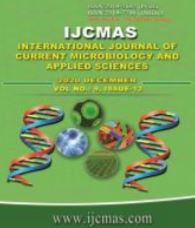


 National Academy of Agricultural Sciences (NAAS)
National Academy of Agricultural Sciences (NAAS)

|
PRINT ISSN : 2319-7692
Online ISSN : 2319-7706 Issues : 12 per year Publisher : Excellent Publishers Email : editorijcmas@gmail.com / submit@ijcmas.com Editor-in-chief: Dr.M.Prakash Index Copernicus ICV 2018: 95.39 NAAS RATING 2020: 5.38 |
Green revolution has transformed India into a food grain surplus country from a deficit one. No other activity has such an immense impact on the agricultural development as the green revolution has done. It also, has reflected its impact on breeding and production of vegetable crops. Side effects of green revolution were witnessed largely in the form of reduced varietal diversity in major cultivated crop species and increased uniformity in appearance and harvestable products. This predisposed improved agriculture to natural calamities. Emergence of new pathogen races lead to outbreak of diseases and pest attack caused yield losses up to 50 percent. Changing climatic condition has caused abiotic stresses like drought, flood, salinity and high temperature, which in turn results in reduction of yield and quality. To feed the ever-increasing population and to fight with malnutrition, wild species offers the scope for quality improvement in vegetable cultivars.
 |
 |
 |
 |
 |